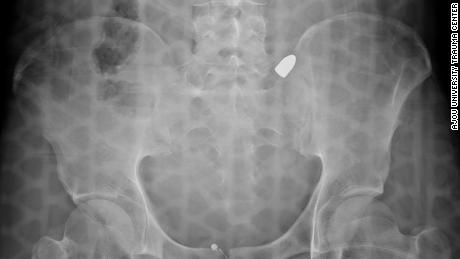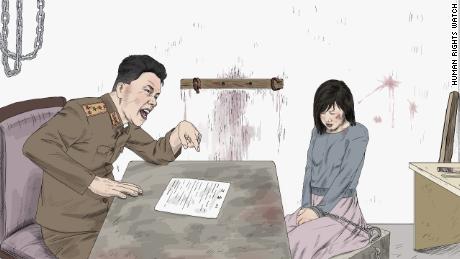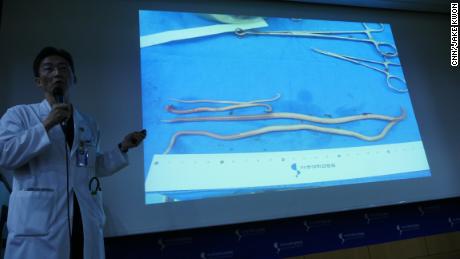North Korean defector: ‘If you don’t have money or power, you die in a ditch’

Giving his first interview since his defection last November, Oh Chong-song told Japanese and South Korean media that he's a "new person with a new name" in South Korea, and that one of the first things he remembers following his emergency life-saving surgery, was seeing the South Korean flag. The then-24-year-old was shot around five times by his fellow North Korean soldiers as he made his daring escape across the line that divides North and South Korea.
Close to death following escape
Riddled with bullets, he was dragged to safety by South Korean soldiers and hovered close to death during the 25-minute airlift to hospital. The South Korean military doctor who operated on him called him "a broken jar. We couldn't put enough blood into him." He told Japanese newspaper Sankei, that the soldiers who shot him were his friends, but that he understood their position. "If they don't shoot, they will be severely punished. If I were in their position I would have shot me too." He said "trouble" with his army friends led to his decision to flee, but declined to elaborate. He said he was hospitalized until February, and still goes to hospital regularly. He said the nerves in his arm were removed, so he "can't feel it" when he pinches it.
He told Japanese newspaper Sankei, that the soldiers who shot him were his friends, but that he understood their position. "If they don't shoot, they will be severely punished. If I were in their position I would have shot me too." He said "trouble" with his army friends led to his decision to flee, but declined to elaborate. He said he was hospitalized until February, and still goes to hospital regularly. He said the nerves in his arm were removed, so he "can't feel it" when he pinches it.
Widespread privation
Oh was born into a relatively well-off military family. He joined the military in 2010, becoming a middle-ranking officer who was working as a driver for a senior officer stationed in the Joint Security Area (JSA) in the DMZ.  Nevertheless, he said that hunger remained a big part of life in the impoverished country. "If you don't have money or power, you die in a ditch," he said.
Nevertheless, he said that hunger remained a big part of life in the impoverished country. "If you don't have money or power, you die in a ditch," he said.
Corruption rampant
He was candid in describing how he got by, saying that, in his former job as a police officer he "would turn a blind eye to people who broke the law but gave me money," and that he would threaten them with jail time if they didn't pay him the requested bribe. Oh, who was found to be infested with parasites when he underwent medical examination in the South, attributed to the use of human feces as fertilizer for the problem — saying that "most people have parasites" in the country. "In the army, people use tableware again and again without washing them. But parasites don't grow in people if they are really malnourished. In my case, I was found with parasites because I was in good condition."He added that widespread shortages of food and goods had led to a general apathy towards the leadership and an "indifference" towards leader Kim Jong Un."People my age, about 80% of them are indifferent and they don't feel loyal towards (Kim). Not being able to feed the people properly, but the hereditary succession keeps going on — that results in indifference and no loyalty."He added that his countrymen "really like Japanese goods. Nissan Patrol (model) cars are used exclusively by officers. "North Korean people condemn Japan in politics, but respect Japan in economics."
Oh, who was found to be infested with parasites when he underwent medical examination in the South, attributed to the use of human feces as fertilizer for the problem — saying that "most people have parasites" in the country. "In the army, people use tableware again and again without washing them. But parasites don't grow in people if they are really malnourished. In my case, I was found with parasites because I was in good condition."He added that widespread shortages of food and goods had led to a general apathy towards the leadership and an "indifference" towards leader Kim Jong Un."People my age, about 80% of them are indifferent and they don't feel loyal towards (Kim). Not being able to feed the people properly, but the hereditary succession keeps going on — that results in indifference and no loyalty."He added that his countrymen "really like Japanese goods. Nissan Patrol (model) cars are used exclusively by officers. "North Korean people condemn Japan in politics, but respect Japan in economics."
Original Article
[contf] [contfnew] 
CNN
[contfnewc] [contfnewc]



